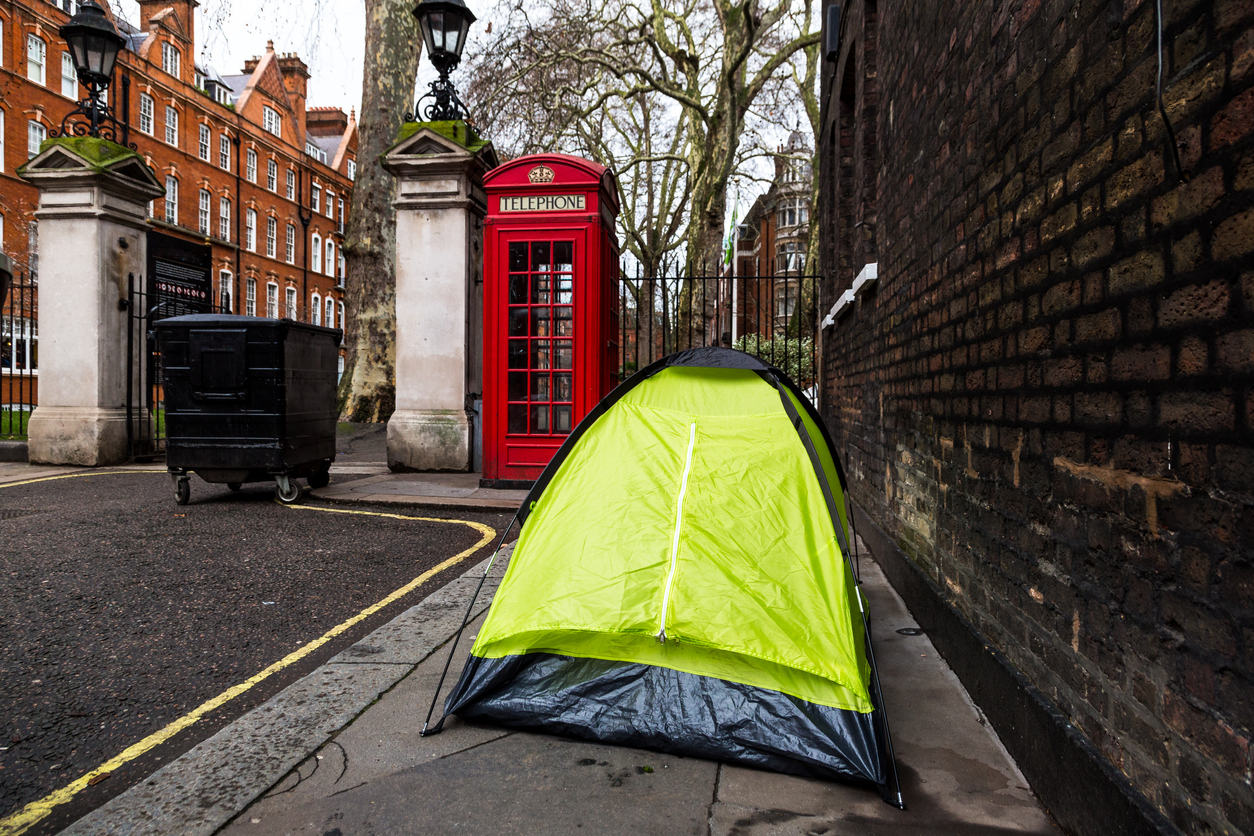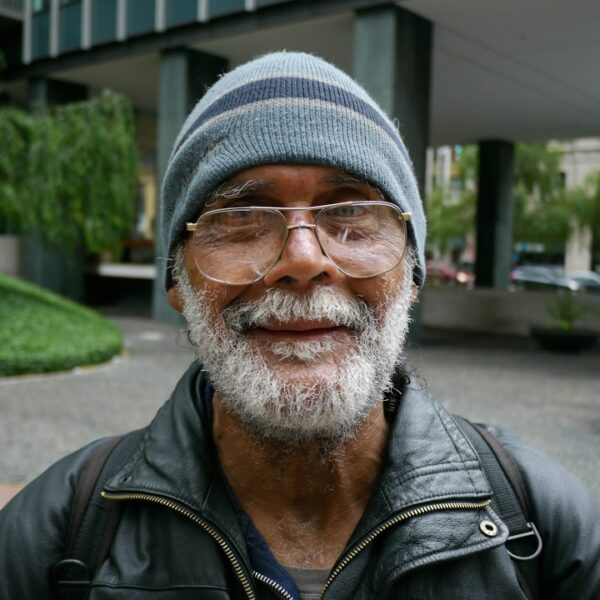More than 100,000 UK prisoners were put on the streets to fend for themselves between 2015-18. Since 2016, there have been repeated UK media reports of people leaving prison being given tents and sleeping bags for their first nights out of jail. This is because local authorities are unable to house them. No one likes life in prison. But given the choice between starvation and homelessness, jail is a step up in the world.
2016, First Reports
Women are considered more vulnerable than men in society. So, they are given higher priority when it comes to social housing. Nearly one-in-three street homeless women experience sexual violence. This is why it came as a shock that Her Majesty’s Prison Bronzefield, close to London, was giving sleeping bags and tents to the women it was releasing in 2016.
The BBC reported, the number of women leaving the jail with settled accommodation dropped from 95.5% in 2014 to 83.7% in 2015. That’s roughly two women in 12 released who were simply told they had to fend for themselves.
Despite its primary interest being prisoner reform, the UK government Ministry of Justice seems to have washed its hands of the situation. In a statement it said, “The responsibility for making sure there is housing available ultimately lies with the local authority.”
It seems that media coverage didn’t resolve the problem. The Prison Reform Trust showed that by 2017 as many as half of women were released into homelessness. “The Board spoke to many prisoners being released from Bronzefield and found that 50-60% were leaving as No Fixed Abode (NFA). Although a letter is given to local authorities, they do not see women coming out of prison as a priority. There is a desperate shortage of hostel and social housing. So many of these women could end up on the streets living rough and open to abuse.”
A National Problem?
In 2018, the Liberal Democrats requested a Freedom of Information Act regarding the size of the problem nationally. The Guardian newspaper reported, “Almost half of the 220,411 prisoners released over the last three years left prison for accommodation that was either not tracked by authorities or were classified as ‘unsettled’.”
The Liberal Democrats’ home affairs spokesman Ed Davey told the Guardian, “It’s hardly surprising that some turn to stealing or even choose to go back to prison for the sake of a warm, dry bed. The criminal justice system is fundamentally failing when people are reoffending just to get a meal or a place to sleep.”
The UK government admits this is a serious issue. Prisons minister Rory Stewart wrote in a Ministry of Justice blog, “On the streets, without a job, without mental health support, or a bed for the night – they are sucked back into a criminal life, reoffend, and soon end up back in prison.”
The Minister explained, “Rough sleepers are seventeen times more likely to be attacked than the general public. They are more likely to have substance misuse problems, and many have issues with their mental health. In addition, nearly one in three female rough sleepers have experienced sexual violence while homeless.”
Rules Against Housing Offenders?
City and county councils have responsibility for social housing in the UK. They are bound by national and local policies that have seen a fall in available housing stock. Such is the case of the national Right to Buy policy where the council tenant can buy their home from the council at a knockdown price. Consequently, where there is a rule that gets the council out of housing someone, no matter their need, the council will often aver to that rule.
In 2017, the House of Commons Library briefing paper Housing support for ex-offenders (England and Wales) reported, “local authorities in England generally have regard to “intentionality” and may judge an ex-offender to have made themselves homeless if losing their home was a likely outcome of committing a crime.” That means that if a criminal is a tenant or owns property with a mortgage and loses that property or tenancy as a result of their crime, the local council could argue that they should have been aware of this before they committed the crime and refuse to house them as a result. The briefing paper also showed that if you are facing jail time of 13 weeks or less, your government rent payments will continue while inside, but this doesn’t apply to mortgage payments or longer jail terms.
Housing Prevents Reoffending
The fact is, if you want people to stop offending as a means of getting a roof over their heads, you need to get them housed. The House of Commons Library briefing continued, “The 2002 Social Exclusion Unit (SEU) Report, Reducing Re-offending by Ex-prisoners, found that stable accommodation reduced the risk of reoffending by around 20%. The Rough Sleepers Unit report, Helping Rough Sleepers off the Street (June 2002), found that housing and employment were fundamental to re-establishing a life in the community, addressing specific problems and avoiding re-offending.”
“Joined up thinking” is a concept for governance where the impact of one policy is adjudged on other policies. The Ministry of Justice’s role is to work to reduce crime. Yet when local governments refuse housing for prisoners based on the assumption that they should have known they would lose their homes when convicted, this means that they may as well reoffend just to survive.
Millions of people in the UK live in poor housing and need social housing. They have their own priorities – a family’s baby may have lung disease and can’t come home. Refugees from foreign conflicts need housing, as do disabled people. Prisoners come low on the list of those that are loved by an angry society. In order for homelessness to be addressed, the social housing estate needs to be rapidly and massively expanded here. Otherwise people will just fall through the net.












